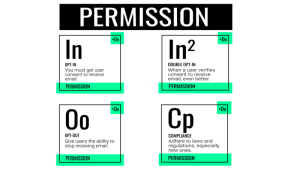I’m still trying to digest this. One of the most iconic German brands has been caught cheating. Driven by an overzealous CEO with an ‘eyes bigger than your stomach’ appetite to become the largest car company in the world cheated customers in the hopes of buying time to find a technical solution that never came. As we all know, they got caught in their own ‘distorted reality field’ assuming that they could get away with murder.
With praise to the tenacity of the American Environmental Protection Agency, they were discovered. As always in such cases the people at the bottom of the pyramid suffer. Workers who had nothing to do with the decisions might lose their jobs and customers who bought their ‘green diesels’ are left aghast by the fact that instead of being environmental friendly they have been spewing 35-times the legal limit of NOx in the atmosphere.
Volkswagen and to a larger extent the ‘German’ brand will be reeling from the consequences for some time to come. As a leader, you should probably be asking the question, what would have I done in the situation? How would I have avoided getting into this trap?
1. Keep Your Head in the Clouds but Feet Firmly Planted on the Ground
Sometimes leaders, even if for the right reasons, can get carry away with their own ambitions and aspirations. Since leaders are normally great communicators and influencers they’re able to get people excited about overly ambitious goals. I’m the last one to suggest not to dream big or to stop stretching the organisation to its boundaries but leaders should have the ability to stay firmly rooted in reality.
2. Listen to the Nay-Sayers
It’s easy as a leader to get swept away by the excitement of the ‘We Can Do It’ crowd in a company. Their energy and excitement is fun to be around and you need them to move the organisation forward. However make sure that you’ve got a couple of ‘realists’ in the team. These are the people who point out what things are possible along with the potential fall-outs that can occur. Listen, encourage them to speak up and not get trampled by the ‘glass is always full’ mob.
3. Do the Twitter Test on Your Critical Decisions
In this world of Wikileaks, super empowered individuals make it impossible to keep secrets. To operate in this environment of utmost transparence I recommend you to do the Twitter Test. Before you make a critical decision that can impact the business and other stakeholders, think through how someone would ‘Tweet’ the decision in 140 characters and subsequently, how the world would react. If you think you could handle the impact of tweeting the decision go ahead and implement.
4. Have Your Antenna’s Up
Look for signs, tidbits of information that don’t make sense. For example
- Talent leaving the company when the organisation is doing really well
- Results that look great but don’t add up
- Signals of ‘group-thinking’
- People not speaking up
- Unexplainable drops or increases in key performance indicators
Keep your antenna’s up and look for loop-holes that don’t make sense – be critical of your own success
5. Dig Deep and Commit Yourself To Why You’re Doing This
True leaders lead causes that they use to serve others. They know that they’re lucky because they’ve been blessed with an ability to lead others and create followers. That responsibility is huge and should be driving how you act and decide. You should realize that the only reason you’re in the leadership position is that you have the responsibility to serve your company, people and communities to the best of your ability.
And if that sounds vague try to answer the following question I learned from Peter Willis:
What am I doing today that will help create a better life for my favorite ten year old for when he/she is 80?
If Martin Winterkorn asked himself that question I’m confident that he would have chosen not to cheat and gamble the reputation of the company and some would say, his country.
It’s a sad time for leadership when events like this occur. All that we can take away are lessons from the mistakes of others and hope not to make similar ones ourselves.
Business & Finance Articles on Business 2 Community(100)








